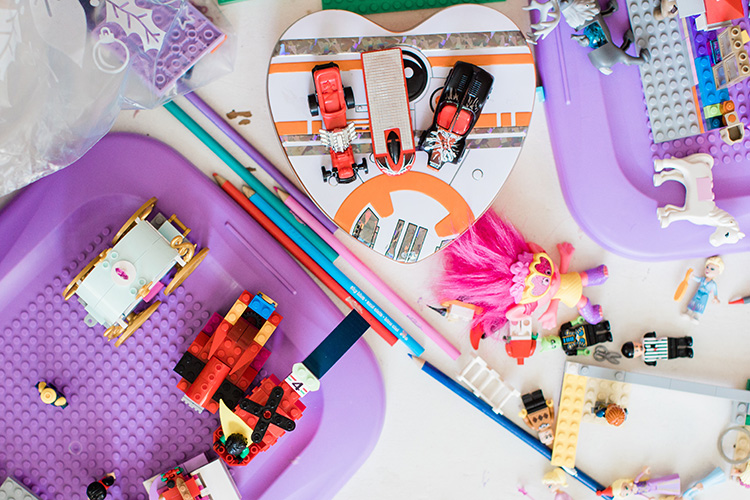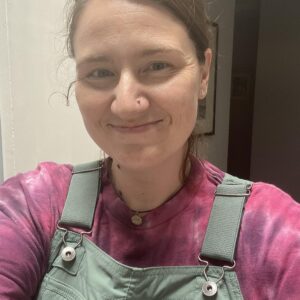by Sarah Carson
It all started as any typical day does in my household.
I woke up around 5 a.m. and made myself a pot of coffee. I spent some time in the living room reading and writing (on this day: Thomas Lynch’s wonderful book of new and selected poems, Bone Rosary, which I highly recommend). Then, I answered some emails. I checked the morning headlines.
As 7 a.m. approached, I headed upstairs to wake my first grader for school. But when she barely stirred, I had an idea: Why not put in a load of laundry and tick another item off the to-do list before waking her?
I bounded down the stairs, delighted with my productivity.
And that’s when I saw it.
From the window next to the dryer, there was an empty space where I’d parked my car the night before. There was no use going back upstairs to wake the kiddo. The car I’d need to take her to school was gone.
Facing ourselves
Ok. Let’s pause here for a second to imagine that you also woke one morning to find something important to you–a car, a wallet, a passport (or, in my case, all of the above)–was missing.
What would you do? Panic? Pray? Pinch yourself to be sure you were not in a dream.
Any of those would be justified. But I sighed. I nodded with resignation.
I thought of the story of the Prodigal Son and how the son wakes up one day in the pigpen and realizes he’s been chasing after the wrong kind of life. I thought of Saul on the way to Damascus to arrest the followers of Jesus when he suddenly falls down, blind.
I recognized that while this was, in fact, a catastrophe, it was one of my own making.
For years, I’d been leaving my keys (and my purse and my daughter’s iPad…) in the car at night because it was easier than gathering it all up and bringing it indoors because that to-do list that served up those oxytocin hits of productivity was leaving me blind to other things.
Did my negligence mean people should walk right up my driveway and steal my belongings? No. But could I have prevented this? Yes. A million times, trillion, zillion times, yes.
The power of a story
As a lover of stories–and a writer of them–I feel like I should have seen this all coming.
 Every morning, I wake up and spend time digging into my own past for patterns. For the last several years, for instance, I’ve been working on a memoir that begins with one of my lowest moments: when I was working what equated to several full-time jobs in an attempt to give my daughter (and myself) the kind of life I always wanted, but not the kind of life any of us truly needs: full of toys and vacations, expensive organic cereal and brand new, name brand clothes.
Every morning, I wake up and spend time digging into my own past for patterns. For the last several years, for instance, I’ve been working on a memoir that begins with one of my lowest moments: when I was working what equated to several full-time jobs in an attempt to give my daughter (and myself) the kind of life I always wanted, but not the kind of life any of us truly needs: full of toys and vacations, expensive organic cereal and brand new, name brand clothes.
As I sat down to write, I started asking myself: Why? What had happened that led me here? How did I come to act as if money and things and purchasing power were so important when I knew in my heart they weren’t what mattered?
As I wrote, I remembered. As a kid, I watched my parents slide from a comfortable middle-class life into poverty. I saw their marriage deteriorate. I saw the way people around me reacted when I wondered about my gender, about whether I really felt like a girl or wanted to grow up and marry a man. I began to see patterns: Each time I got scared, I ran so hard and so fast that I didn’t look up to see where I was going. I didn’t bother to notice what kind of toll the running was having on me or the people I loved.
The stories beneath it all
My friend Dawn Burns has also turned to reading and storytelling as a means to ponder life’s questions.
In one of my favorite chapters from her novel, Evangelina Everyday, the protagonist, Evangelina, is trying to say her prayers one night in bed next to her husband. But when she can’t think of anything to pray about, she starts praying for characters from Downton Abbey:
“She thanked God that Mrs. Hughes did not have cancer, prayed that neither Mrs. Hughes nor she would know the pain of that. And wasn’t it remarkable that Mrs. Patmore had gotten her eyes fixed so she could see to cook!”
But as Evangelina begins pondering the lives of those from television, she can’t help but start thinking of her own life:
“Her breath got all tight inside her chest and she wanted to hold it inside forever as if she could hold together all of her scattered, uncertain self…she didn’t know what she was and she didn’t know how to live. Was that it? Had she once known and forgotten? Had she never figured it out?”
For Dawn, writing the novel led both herself and her character to places they wouldn’t have chosen to go, “partly because, faced with hard things, we’re both very good at shutting down or running away.”
“But at the moment Evangelina prays with Downton Abbey characters, especially poor Edith,” Dawn says, “something broke free in me that would take the writing of a book to resolve. Maybe that’s the power of stories. Stories—in the reading, watching, and telling—save us over and over again. I know that writing Evangelina Everyday helped save me!”
So what?
Stories can play an important role in our lives. Books can move us. Movies can inspire us. The stories of the Bible can guide us and help us see ourselves.
But knowing our own stories can also be transformational. To be able to see and articulate where we’ve come from—and what events have shaped us—can help us love ourselves more deeply and compassionately and help us love others, too.
This is not to say that we all have something to learn from the misdeeds of strangers. But when my car was eventually found abandoned in another county, I couldn’t help but feel as if the impound fees were a small price to pay for the lesson I learned.
No one was hurt. (At least, not physically. We do need to take a look at the ways we are all hurt by the systems that make stealing cars a worthy endeavor.)
And I learned to start doing the things I should have been doing all along, valuing that which is valuable—not the car and my wallet and the iPad, but the reasons we have this stuff in the first place: to live our lives. To take care of those we love.
And maybe I’ve learned my lesson. Or maybe I haven’t. Because the truth is, we all will mess up again, and learn, and then do it all over.
The story keeps going. Every happy ending is also the beginning of something new.
Discussion Questions
1. As you look at the stories that have led you where you are in life, do you see opportunities for learning? For pondering?
2. What kinds of stories are you more apt to share with others? Are there stories that you carry with you but can’t bring yourself to tell?
3. When you hear the stories of others or share your own with others, what makes you more likely to connect with them?
Closing Prayer
Creator God, you are the co-author in the stories that make us. You invite us to walk alongside you—to learn and to write and revise as we go. Help us remember that every moment is an opportunity—if not to write the story, then to share in it. May our stories continue to shape us and to shape those around us by your grace.
 Sarah Carson is a former managing editor of Gather magazine. Her book How to Baptize a Child in Flint, Michigan is available where all books are sold. Read more of her work at stuffsarahwrote.com.
Sarah Carson is a former managing editor of Gather magazine. Her book How to Baptize a Child in Flint, Michigan is available where all books are sold. Read more of her work at stuffsarahwrote.com.
Read the other article in this issue, “Stories that feel,” by Sarah Carson.


Sarah, thanks for the story that tells us life begins again every day, or, at least, with every new lesson.